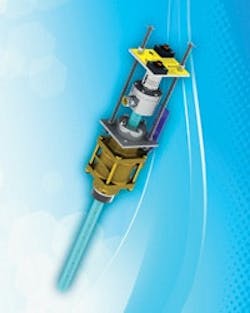Mag Meter Improves Operations & Management
The city of Geneva, Ohio, in Ashtabula County is home to 7,000 residents. Its water works department manages a 350,000 gal per day (gpd) drinking water operation.
The city originally lacked bulk metering to measure its treated water purchases from the county, and was billed by the county according to an agreed formula that apportioned an amount of the overall county consumption.
The city wished to transfer to metered billing, which would accurately track water purchases from the county. The water works department determined that eight individual metering locations were needed and there were several important challenges to be addressed.
Budget impact. Securing the operational efficiency gains would depend on finding a cost-effective solution. Most of the city’s water mains are located in the road or right-of-way, requiring a solution that could support the weight of vehicles.
Ease of installation withminimal disruption. Geneva needed flowmeters that could be installed without the need for a line shutdown. Shutting down these lines was not operationally acceptable.
Meter performance and bidirectional capability. To invest in flowmeters, the city wanted a minimum of 1% accuracy. Additionally, the open nature of the system allowed water to flow in either direction through the pipelines; therefore, it required bidirectional measurement.
Startup and calibration assistance. Because the city’s system had no bulk water metering, the nominal flow rates within the pipes were uncertain.
Solution Aesthetics. As a scenic community, Geneva had to find locations for aboveground meter reading stations that were close to electrical service, but would not compromise property aesthetic appeal.
The water works department decided an electromagnetic flowmeter would provide the accuracy and reliability needed. While the department considered different electromagnetic technologies, it decided McCrometer’s FPI Mag full-profile insertion flowmeter best addressed its challenges.
The water works department considered spool-type electromagnetic meters, but they required a vault because they could not support vehicle loading and required expensive line rerouting. The FPI Mag flowmeter, however, is cost effective for retrofit applications because its compact insertion design fits in tight spaces.
The flowmeter also was an ideal solution for its ease of installation and minimal disruption. Installation can occur without interrupting service, dewatering lines, cutting pipe or welding flanges. Installation of the FPI Mag full-profile sensor and electric converter only took a combined half day.
Higher accuracy would reduce the city’s water cost. The mag meter delivers accuracy of ±0.5% of reading, ± 0.03 ft/sec zero stability from 1 to 32 ft/sec velocity range. Bidirectional capability also met the city’s application needs.
Due to the absence of bulk metering, the city could not provide McCrometer with confident flow ranges for calibration. Consequently, the company used its NIST-certified Flow Lab for calibration and worked with the city after installation to confirm the installed meter calibrations.
With the Mag meters requiring so little installation space, the city used small manholes with “dog house” cutouts. These manholes are fitted with metal covers designed to support the load of residential traffic and provided siting options that were aesthetically acceptable.
The water works department concluded that the mag meters met all of its requirements, including accuracy, reliability and bidirectional flow, as well as an installation approach that satisfied its cost, siting and uninterrupted operation needs. Eight FPI systems were installed in pipelines ranging in size from 6 to 16 in. All are performing successfully.
Download: Here
